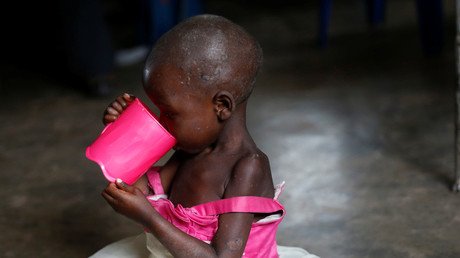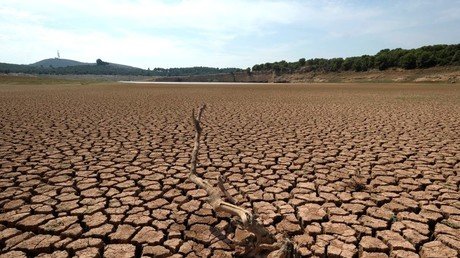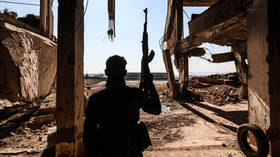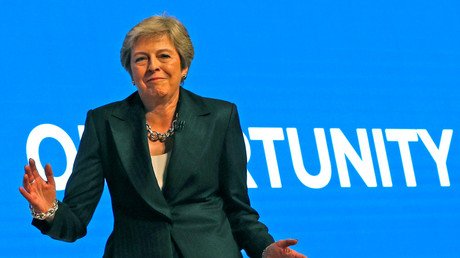'We are building digital poorhouse in the US'
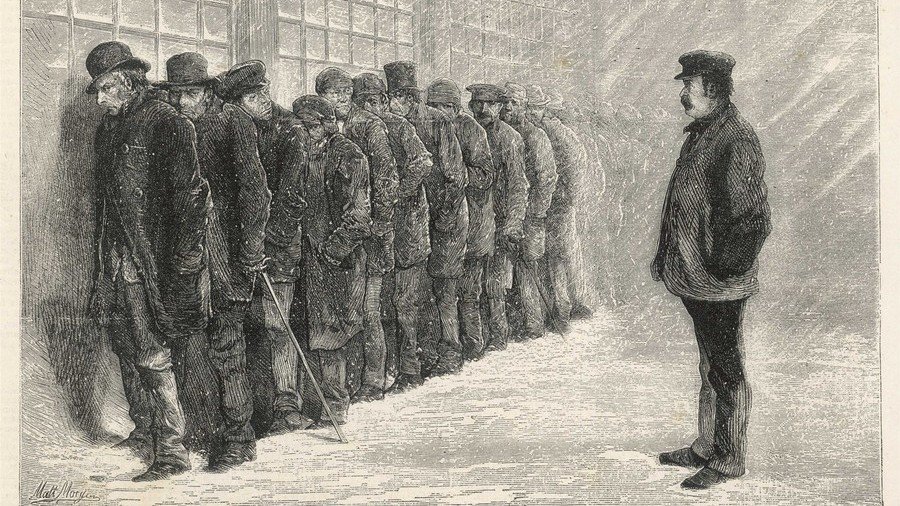
There is no reason anyone in the US should live 10 years on a sidewalk or lose a child because they can't afford a medical appointment, but we are living in the era of digital poorhouses, professor Virginia Eubanks has told RT.
"We are the most spied upon, watched, eavesdropped, photographed and monitored population in human history. But in this age of wholesale digital surveillance most of us are watched not as individuals but as members of a particular social group: people of color, immigrants, Muslims, dissidents, sexual minorities and the poor are monitored and tracked more closely than other segments of the population," Chris Hedges said in the latest edition of his show 'On Contact' on RT.
"The imposition of digital monitoring, data collection, risk models and algorithms is pervasive when these groups attempt to travel through heavily-policed neighborhoods, access health and social services or leave or enter the country."
"This invisible digital network decides who gets housing or food, who can receive medical care, who gets profiled and arrested, who can find employment and who goes to jail," he added.
Chris Hedges discussed digital monitoring of the poor with Virginia Eubanks, an Associate Professor of Political Science at the University Albany, SUNY and the author of 'Automating Inequality: How High-Tech Tools Profile, Police and Punish the Poor'. She explained how the goals of Victorian-era poorhouses have evolved with 21st Century technology to exert control and surveillance of needy, poor and homeless people.
RT: You call these 'informational sentinels' which you begin the book by talking about your own experience with. How do they work globally? We see the closed-circuit cameras, we know that our cell phones, as you're write, are global positioning devices that we carry around on behalf of the security and surveillance state, we already have police departments using drones… Talk about the map for us, the kind of overarching system that we now live under.
Virginia Eubanks: One thing that George Orwell got wrong in 1984 is the idea that Big Brother is watching me or you - Big Brother is actually watching us. The way I talk about it in 'Automating Inequality' is by focusing on the experiences of poor and working communities, multiracial communities but primarily those who are struggling to meet their sort of basic material needs.
And the reason I do that is, there's another old saw by William Gibson that says 'The future has already arrived, it is just badly distributed' [The future is already here — it's just not evenly distributed] and I believe that Gibson was right about that. But I think for maybe the opposite reason than the way he meant it. So I assume that the way he meant it is that the future and all the shiny new tools have arrived but rich people get them first.
My argument in the book is that the future of digital surveillance has arrived but it comes first to neighborhoods and communities that you could think of as low-rights communities, places where there's low expectation that folks have basic rights to things like privacy, but also to things like self-determination and dignity and their basic human rights are less likely to be respected.
That can be poor and working-class communities, that can be communities of color, that can be in war zones and in places where wars of aggression are happening around the world and that's what we see creating and building, what I call in the book, a 'digital poorhouse' in the US.
RT: You begin the book by talking about the history of poorhouses… but there have always been mechanisms of social control that have been very crude. I think that's why you go back and look at the history of the poorhouse.
Because this digital control is part of a long trajectory of social control, it is just its new iteration. Of course, the danger is that this then spreads out to the wider society and the New York Times ran a story about China essentially planning this for the whole population.
But let's talk about, as you do in the beginning of the book, the forms of social control that were imposed, many of which were extremely cruel, and how this is a kind of updated version of that…
VE: Yes, I think of the poorhouses, the deep social programming for the kind of high tech tools, that we're seeing in social services today. A poorhouse was basically a brick-and-mortar institution for incarcerating poor and working-class people.
You could either be confined to one forcibly, if you were found guilty of vagrancy or of begging or if you're a woman having sex outside of marriage, your family could send you to one or you could end up in one in a sort of quasi voluntary way, much like a homeless shelter today. But the conditions of entry into a poorhouse were really severe.
If you were white and male, the period in which poorhouses were most popular started around the 1820s but some were open as late as the 1980s… The conditions of entering the poorhouse and therefore getting public assistance were: you had to give up your right to vote, your right to marry, your right to hold office and in many cases your children because it was understood at the time that poor children could be rehabilitated by having access to wealthier families. And what access meant often at the time was working for them as domestic help or as agricultural help.
The reason that I ground the story I tell in the metaphor of the digital poorhouse is that is a really important moment in US history where we decide that the way social service programs should work is more as moral thermometers, as these machines for deciding whether or not you're truly worthy of support rather than as universal floors, which is that we agree as a community as a political culture that there's a line under which we allow no one to go for any reason.
There's no reason that anyone in the United States should live ten years on a sidewalk. There's no decision you can make that means you deserve to live on the sidewalk. There's no decision you can make that means a parent deserves to lose their child because they can't afford a medical appointment or a prescription. This moment of the digital poorhouse is the moment where we say the first thing our social service system should ask is: 'Is your poverty your own fault?'
I think we're seeing a moment that's very similar to the moment in which poorhouses arose or the moment several centuries later in the 1880s when scientific charity arose. Part of my argument is that the tools that we're seeing now are not so much a revolution as evolution. That they live in this history of other tools that were specifically about regulating the behavior of poor people.
Watch the full episode here:
Think your friends would be interested? Share this story!
